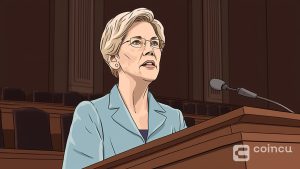Paraguay’s crypto regulation advances despite opposition from the central bank
Despite objections from the country’s central bank, the Chamber of Deputies of Paraguay has approved the drafting of a cryptocurrency regulatory law for submission to the Senate. Paraguay’s legislature initiated this action in June 2021.

In a special session on May 25, deputies voted 40 to 12 in favor of moving the bill forward with modifications. The draft will now be sent back to the Paraguayan Senate for further consideration.
The bill, which was originally introduced in the Senate of Paraguay in July 2021, seeks to restrict industrial activity utilizing digital assets. This would require licensing and overseeing crypto-focused enterprises as well as crypto mining operations in Paraguay. The proposed rule, however, does not entail making Bitcoin legal tender in the state.
“The purpose of this law is to regulate the production activities and commercialization of virtual or crypto assets, in order to guarantee legal, financial and fiscal security to the businesses derived from their production and commercialization,” the bill’s first article states.
Before voting, lawmakers debated the bill extensively, with some raising worries such as Bitcoin’s energy use and its possible use as a money-laundering tool by bad actors. Deputy Basilio Nunez, for example, asserted that the crypto regulation push would “favor organized crime” and questioned El Salvador‘s use of Bitcoin as legal tender.
While the majority of deputies agreed to advance the bill, not everyone is excited about the prospect of Paraguay regulating the crypto sector.
The country’s central bank (BCP) submitted a comment in March saying that, in its view, it is unclear whether the benefits Paraguay would receive from regulating the digital asset industry would outweigh cons like “electricity consumption, loss of reputation and costs for the financial system, which would be significant.”

The BCP concluded in its assessment that “crypto-assets do not fulfill the basic capabilities of cash and depict high-risk investments.” They further stated that “the actual intent to regulate the industry and commercialize crypto, as stated in this invoice, may create a false sense of security regarding the possession of any such asset.”
However, Congressman Carlos Rejala was not convinced. “Totally the opposite,” he said, explaining that the law will be primarily focused on the tracking of digital assets. He also stressed that the regulation would not make cryptocurrencies legal tender but would instead regulate the digital asset industry.
The BCP allegedly confirmed this stance just last week during a meeting of central bankers in El Salvador to address monetary inclusion. While many people assumed the event was primarily about Bitcoin (BTC), the bank declared unequivocally that it was not about cryptocurrencies and would not be discussing them.
As Bitcoin and other cryptocurrencies continue their march towards mainstream adoption, more and more nations are now making efforts to introduce amenable rules that would support the growth of innovative technologies within their shores.
DISCLAIMER: The Information on this website is provided as general market commentary and does not constitute investment advice. We encourage you to do your own research before investing.
Join CoinCu Telegram to keep track of news: https://t.me/coincunews
Follow CoinCu Youtube Channel | Follow CoinCu Facebook page
Harold
CoinCu News



















